- Home
- Scott Mariani
The Sacred Sword bh-7
The Sacred Sword bh-7 Read online
The Sacred Sword
( Ben Hope - 7 )
Scott Mariani
Scott Mariani
The Sacred Sword
Prologue
The Fortress of Masada
Roman Province of Judea, The Holy Land
73 a.d.
‘They will soon be upon us,’ said the young man called John, turning around from the battlements with fear in his eyes.
His commander, Eleazar ben Yair, made no reply. Leaning out over the craggy, sandy fortress wall he shielded his eyes from the blazing sun and scanned the scene below. Far beneath them, swarming like a gigantic colony of ants around the foot of the mountain as they laboured in the dust and the choking desert heat, the teeming masses of the Roman Tenth Legion were close to finishing the construction of the enormous stone siege ramp.
Eleazar knew in his heart that John was right. The siege would soon be over. Within a matter of hours, there’d be nothing to do except watch helplessly as column after column of soldiers marched up the ramp and stormed the battlements, the sun glinting off their armour and massed spear heads. Nothing to do but wait for the slaughter to begin.
Had they really thought that a rag-tag handful of defenders, many of them women and young children, could hold out indefinitely against the crushing might of Rome? Had they really believed that the fortress of Masada would prove impregnable?
Eleazar himself had seen what his sworn enemies were capable of. Three years earlier, he’d been one of the few Jewish rebels who’d managed to escape from the carnage that the Roman army had inflicted on his home city of Jerusalem, razing it to the ground and claiming a million innocent lives in retaliation against the Jews who dared to defy Caesar’s rule. The army now encamped around the mountaintop fortress of Masada, commanded by Lucius Flavius Silva, the Governor of Judea himself, had been sent to destroy the final pocket of resistance. Silva’s forces had built an impassable siege wall that stretched for seven miles around the base of the mountain, ensuring that no rebel could escape and nobody could come to their aid. Along the wall’s perimeter stood the Romans’ siege towers and giant catapults. They were terrifying, but nothing struck fear into the rebels’ hearts like the assault ramp and the promise of what was to come.
‘Nobody can resist such an army,’ John quavered. ‘The Romans will rape our women, slaughter our children in front of us and make slaves of us all.’
Eleazar closed his eyes in sadness. He already knew what had to be done. Over nine hundred people. As their leader, he had no choice but to make the fateful decision himself. He turned away from the battlements to face the young man. ‘I would rather die a free man than submit to that,’ he said softly.
‘Then what shall we do?’
‘We shall deliver our souls to God,’ Eleazar replied. ‘All of us. The Romans will find none alive.’
But before addressing the grim task that lay before him, he had to ensure that one special duty was taken care of.
He reached down to his belt and drew out the glittering sword that he’d carried with him from Jerusalem. Reverently clutching the bronze hilt with both hands, he raised the blade to his mouth and kissed the cool steel.
‘The sword must be hidden,’ he said. ‘Whatever happens, it cannot fall into the hands of the Romans.’
They prayed.
And then the final plans were begun.
Chapter One
Near Millau, Midi-Pyrenees, Southern France
December 2nd
The present day
It was as Father Fabrice Lalique was driving home through the dark, misty night that he saw the car behind him again.
Up until then, the fifty-three-year-old priest had been reflecting on the hours he’d just spent with his parishioners Pierre and Madeleine Robichon in the nearby village of Briande, trying to quell the latest bitter dispute between the couple. It was his duty to minister to the social and family problems of his diocese; and God knew that the turbulent Robichons had more than their fair share of those. He’d eventually left them settled and in peace, hands clasped across the kitchen table, but the reconciliation had had to be painfully, exhaustingly coaxed out of them and he’d been at it far longer than intended.
The Volkswagen Passat’s dashboard clock read almost eleven. A heavy blanket of fog hung over the whole Tarn valley, and as Father Lalique headed back along the deserted country roads away from Millau he had to blink and strain to see where he was going. He couldn’t wait to get back to the warm, cosy little rural retreat on the edge of the village of Saint-Christophe where he’d lived alone these many years, pour himself a much-needed glass of Armagnac and go to bed. A nip of brandy might help him forget his own problems, and the worry that had been haunting him for the last several days.
Fabrice sighed. It was probably just a figment of his imagination. Maybe the responsibility of his job was getting to him at last. Perhaps Doctor Bachelard’s advice about early retirement was worth taking after all — when an overtired brain began cooking up ideas that you were being followed and watched, it could be a sign that it was time to take things a bit easier.
‘That’s all it is,’ he thought to himself, taking a hand off the wheel to rub his chin. ‘Foolish to imagine otherw-’
The sudden dazzle of headlights behind him seemed to fill the interior of the Volkswagen. The priest’s heart skipped a beat and then began to thump wildly as all the anxiety came instantly flooding back. He narrowed his eyes at the rear-view mirror, trying to make out the shape of the lights.
Was it the Mercedes again? The same Mercedes he’d been sure was tailing him yesterday on his way home from the church in Saint-Affrique? And the day before, and last Tuesday as well…? He stared so long into the mirror that he almost missed the bend ahead and had to swerve to avoid the verge.
‘Damn this fog,’ he muttered. But he’d been driving these roads for over a third of a century and knew every inch of them. He’d soon see if he was being followed. Any second now… wait for it… yes, there it was. He swung the car hard right as the junction came up and accelerated as hard as he dared down the narrow lane that would take him the long way round towards Saint-Christophe. He glanced back at the rear-view mirror. Nothing. He felt the heart palpitations begin to subside. There. See? You’re an idiot.
Then the lights reappeared in his mirror and his mouth went dry. He hung another sharp right, then a left, taking him deeper into the web of country lanes. The lights stayed right there in his mirror.
Terrified to go any faster, Fabrice clenched the steering wheel tightly and willed the night to clear. The trees loomed out of the mist. Man and boy he’d roamed in these woods, but now they seemed filled with a sinister life of their own, as if closing in on him, reaching out to grab him in their claws.
He fumbled for his phone and dialled a familiar number. No reply. At the prompt to leave a message, he spoke urgently and breathlessly, his English faltering in his panic: ‘Simeon — it’s me, Fabrice. The thing I told you about; I am sure it is happening again. Just now, tonight. I think someone is after me. Please call me as soon as you can.’
The lights were still there, closer now, white and dazzling through the fog. Now what? Fabrice thought of calling Bernard, the local chief of police — he had his home number on his phone. But Bernard would be deep into a bottle by this time of night, if not passed out in front of the TV.
Then Fabrice thought of his old friend Jacques Rabier, whose farm was just a kilometre away beyond the woods. Groaning in panic, he hit the gas. A heart-stopping series of blind crests and hairpin bends later, he slewed the car through Jacques’ familiar rickety gate and went bumping wildly up the long track towards the farmhouse.
The place was in darkness, shutters clo
sed. Fabrice killed the engine and stumbled across the yard to thump on the front door. ‘Jacques?’ he called out.
No reply. A dog barked in the distance. And then Fabrice heard something else. The soft rumble of tyres coming up the track, and the sound of an engine that wasn’t the clatter of Jacques Rabier’s old Peugeot 504 pickup truck. As the lights appeared through the trees, Fabrice tore himself away from the farmhouse and lumbered awkwardly across the yard towards the big wooden barn where, once upon a time, he and Jacques had played as kids. He pushed open the tall door and ducked inside just in time to avoid being seen in the car headlights that swept across the yard. Their blinding glare shone through the slats, partly illuminating the inside of the barn, the farm machinery covered in tarpaulins, the stack of straw bales against the far wall.
Fabrice didn’t have to search hard for a place to hide. As boys, he and Jacques had used the storage space under the barn floor as their secret den, gang headquarters, pirate ship cabin; in their teens they’d once or twice brought Michelle and Valerie from the village there, to smoke illicit cigarettes and innocently fool around.
As Fabrice stumbled towards the trapdoor, his guts tightened momentarily with the fear that Jacques might have boarded it up or left a piece of machinery across the top of it — but no, here it was, just as he remembered it, lightly buried under dust and straw. His trembling fingers found the edge of the trapdoor lid and lifted it with a creak.
It was a tighter squeeze than it had been in his youth. As he was forcing his bulky shoulders through the hole, he felt a sharp painful tug as something cut into the back of his neck. The little silver crucifix he wore around his neck had got snagged on a piece of rough wood and the slim chain had snapped. But there was no time to start hunting around for it. Fabrice hastily lowered the trapdoor above his head and clambered clumsily down the ladder into the hidden pitch-dark space below. He could barely breathe for terror.
This was crazy. He was a respected church official, not some criminal on the run. He had nothing to hide. His conscience was as immaculate as his professional record and he had no reason whatsoever to flee from anyone — yet some overwhelming primal instinct, so strong he could almost taste it between his gritted teeth, told him he was in appalling danger.
The barn door opened. Footsteps sounded overhead. Three men, it sounded like: they spread out and paced the length of the barn, the darting beams of their torches visible through the cracks in the floorboards as they searched the place briskly and methodically.
Who were these men? What did they want? Fabrice swallowed back his panic, terrified to breathe, convinced that they must be able to hear the hammer-beat of his heart. He inched his way deeper into the shadows, away from the torchlight.
Something moved against his arm and he almost cried out in shock. A rat: he brushed the filthy thing away and it slithered up a beam and through a gap in the floorboards overhead, claws scratching on the wood as it scuttled away. The torchlight suddenly swung towards the sound. Fabrice’s heart stopped as the light lingered over the trapdoor, catching the drifting dust particles in the air.
The footsteps came closer. ‘Just a rat,’ said a voice, and he realised the men were speaking English. ‘He’s not here. Let’s go.’
Fabrice let out a silent, trembling sigh of relief as the footsteps headed back towards the entrance to the barn. They were leaving. Once their car was gone, he’d wait a few minutes before climbing out of here. Should he go back to the car? Get away on foot and alert the police? Wait for Jacques to come home?
The sudden ringing of his phone shattered his thoughts and tore through the silence. He plunged his hand into his pocket and pulled it out with horror, the damn thing screeching like a siren as his trembling fingers groped for the button to turn it off. The phone’s screen showed the name of the caller: Simeon Arundel.
The shrill ringtone shut off, but it was too late. The footsteps were pounding the floorboards overhead as the men came running back inside the barn. Torchlight shining directly down through the cracks; the trapdoor lid lifting; a dazzling beam right in his face.
Father Fabrice Lalique wasn’t a fighting man. Never in his adult life had he had to defend himself physically, and his resistance against three strong and determined attackers was as feeble as his cries of ‘ Who are you? What do you want with me? ’ as they dragged him through the barn and outside to the waiting Mercedes. His phone was taken from him. Powerful hands bundled him inside the car’s open boot and slammed the lid shut.
Seconds later, Fabrice was being jolted around in his confined space as the Mercedes took off down the bumpy farm track. He beat against the bare metal lid, screamed until his throat was raw — then, completely spent, he gave in to the numbness of despair and curled up in the darkness, barely conscious of the movement of the car or the passage of time.
It was only when the boot lid opened and he looked up to see the faces of the men gazing down impassively at him that he realised the journey was over. The men hauled him out of the boot. He felt the night air clammy on his brow, solid concrete under his feet. The Mercedes was pulled over at the side of a broad, empty motorway. Through the fog that drifted like smoke across the road, Fabrice saw that his own Volkswagen was parked a few yards behind it.
Fabrice searched the faces of his captors for any trace of expression, of humanity, and saw none. ‘Who are you?’ he croaked, fighting for breath. ‘What’s happening to me?’
Fabrice quickly saw which of the men was in charge. His face was lean, the eyes quick and cold. His receding hair was cropped to the same length as the dark stubble on his jaw. As two of the others held Fabrice tightly by the arms, the leader slipped his hand inside his plain black jacket and produced a pistol. Without saying a word, he waved the gun towards the side of the road. The thugs holding Fabrice’s arms began to frog-march him in that direction. He blinked and shook his head in bewilderment as the edge of the road came nearer step by step; beyond it nothing but swirling mist.
Then he saw the steel barrier and he knew where he was.
‘Oh no,’ he said. ‘No no no…’
The Millau Viaduct. The highest bridge in the world, carrying a long stretch of the A75 autoroute three hundred metres above the Tarn Valley.
And he was headed right for the edge.
Fabrice struggled desperately, but there was no resisting the force driving him towards the plunging abyss.
‘Why?’ he asked, but all that came out was an animal moan of terror.
A sudden gust of wind parted the mist and he caught a momentary glimpse of the drop into the darkness below, the supporting columns of the bridge like colossal towers, higher than cathedral spires. Fabrice’s breath was coming in gasps. He couldn’t speak. Managing to tear an arm free, he gripped the cold metal of the barrier and clung on. The leader of the men said nothing, reached across and unpeeled Fabrice’s clawed fingers with such brutal force that he broke two of them.
Fabrice didn’t even feel the pain. He was way past pain.
The men shoved him over the edge. Father Fabrice Lalique went tumbling down and down, cartwheeling in empty space, his scream fading into the night. The mist had swallowed him up long before he hit the distant ground below.
As the men turned away and started walking back to the Mercedes, the one in charge took out his phone. ‘It’s done,’ was all he needed to say. He climbed into the driver’s seat. His colleague who’d followed in Lalique’s car left it where it was with the door open and the key in the ignition, and got in the back of the Mercedes.
At the same moment, their associates inside the priest’s house were already downloading the material, several hundred megabytes’ worth of extremely illicit photographic images, onto his personal computer. Their anonymous source would never be found, and neither would any trace of the intruders’ presence in his home.
And soon after the Mercedes’ taillights had vanished into the mist, leaving the Volkswagen Passat standing alone on the empty viaduct, the last words
of Father Fabrice Lalique had been composed and emailed to every contact in his address book:
My Dear Friends
By the time you read this message, I will be dead. I ask you not to mourn for me, as I am unworthy of your grief.
The shame of my sins is a burden I can no longer bear. May God have mercy on me for the terrible things I have done.
Chapter Two
Two weeks later
Storm clouds scudded darkly overhead as another great rolling wave crashed against the bow of the SeaFrance cross-channel ferry Rodin, sending a plume of white foam and spray lashing across her deck. Most of the nine hundred or so passengers braving the gale warnings to cross over to England that freezing December afternoon were huddled in the luxury of the superferry’s bars and lounge areas.
Just one man stood on the outer deck. He leaned against the railing, the collar of his scuffed leather jacket turned up, the wind in his thick blond hair, his body moving easily to the heave and sway of the ship. His eyes were narrowed to blue slits against the salt spray as he gazed northwards, just able to make out the shape of the Cliffs of Dover through the murk. He took a draw on his cigarette, and the wisp of smoke was snatched away by a violent gust.
His name was Ben Hope. Half English, half Irish, just turned forty years of age but still as fit as he’d ever been. In his time he’d been a soldier, before leaving the British Special Forces to plunge deep into the shady world of the international kidnap and ransom business.
Working freelance as what he called a ‘crisis response consultant’, using methods and skills that conventional law enforcement operatives either weren’t allowed or weren’t trained to employ, Ben had delivered more than a few innocent victims safely back into the arms of their loved ones. More than a few kidnappers had been efficiently dispatched in order for that to happen.

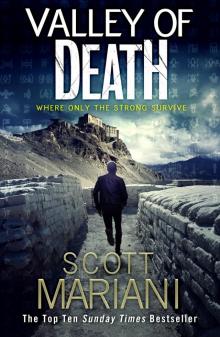 Valley of Death
Valley of Death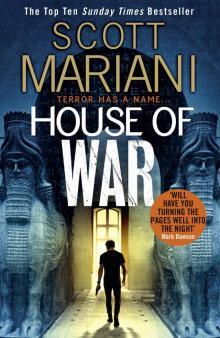 House of War
House of War The Pandemic Plot
The Pandemic Plot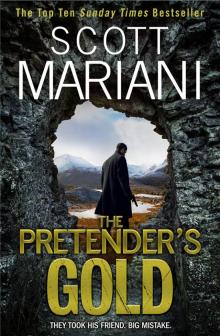 The Pretender's Gold
The Pretender's Gold The Demon Club
The Demon Club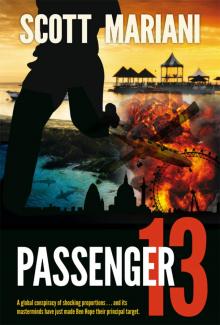 Passenger 13 (Ben Hope eBook originals)
Passenger 13 (Ben Hope eBook originals)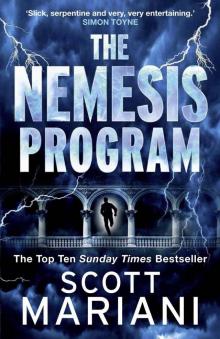 The Nemesis Program_Ben Hope
The Nemesis Program_Ben Hope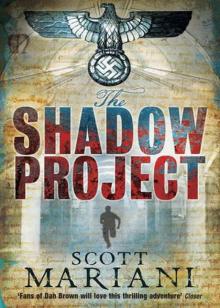 The Shadow Project
The Shadow Project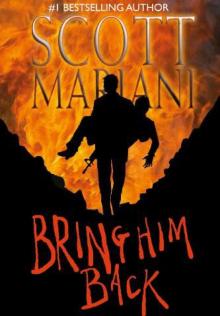 Bring Him Back
Bring Him Back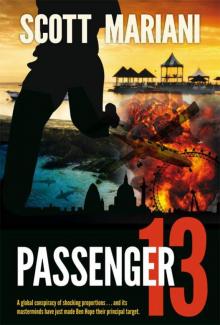 Passenger 13
Passenger 13 Sacred Sword (Ben Hope 7)
Sacred Sword (Ben Hope 7)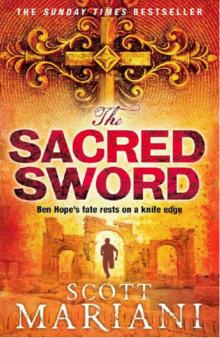 The Sacred Sword (Ben Hope 7)
The Sacred Sword (Ben Hope 7)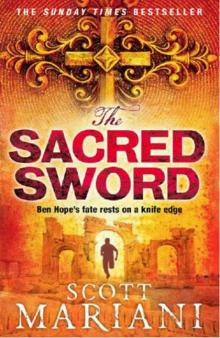 Sacred Sword
Sacred Sword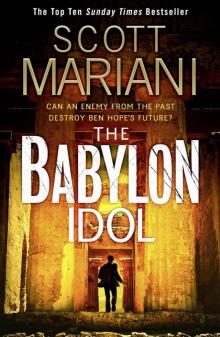 The Babylon Idol
The Babylon Idol The Armada Legacy
The Armada Legacy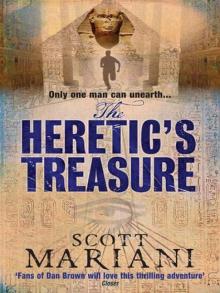 The Heretic's Treasure
The Heretic's Treasure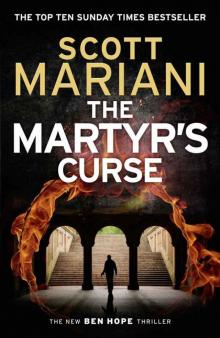 The Martyr’s Curse
The Martyr’s Curse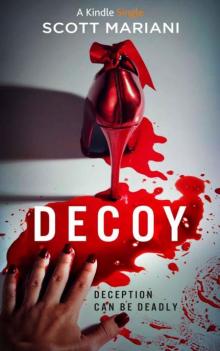 DECOY (Kindle Single)
DECOY (Kindle Single)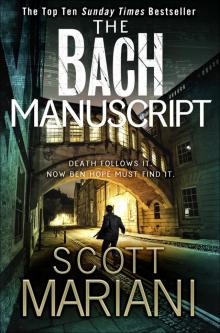 The Bach Manuscript
The Bach Manuscript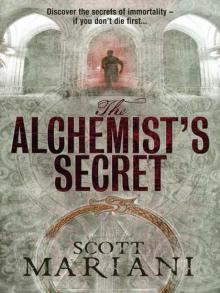 The Alchemist's Secret
The Alchemist's Secret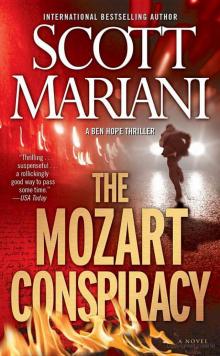 The Mozart Conspiracy: A Novel bh-2
The Mozart Conspiracy: A Novel bh-2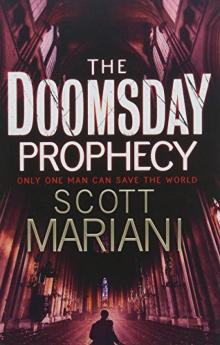 The Doomsday Prophecy
The Doomsday Prophecy The Ben Hope Collection: 6 BOOK SET
The Ben Hope Collection: 6 BOOK SET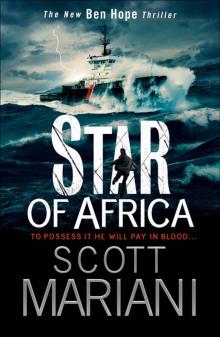 Star of Africa (Ben Hope, Book 13)
Star of Africa (Ben Hope, Book 13)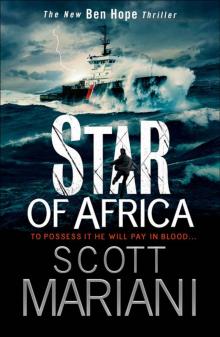 Star of Africa
Star of Africa The Forgotten Holocaust (Ben Hope, Book 10)
The Forgotten Holocaust (Ben Hope, Book 10)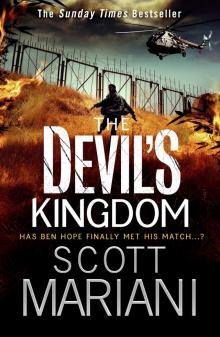 The Devil's Kingdom
The Devil's Kingdom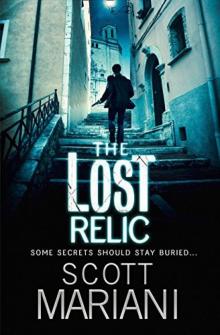 The Lost Relic
The Lost Relic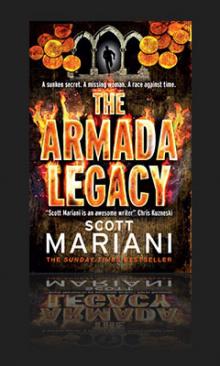 The Armada Legacy bh-8
The Armada Legacy bh-8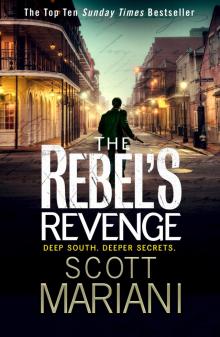 The Rebel's Revenge
The Rebel's Revenge The Forgotten Holocaust
The Forgotten Holocaust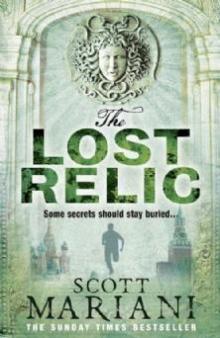 The Lost Relic bh-6
The Lost Relic bh-6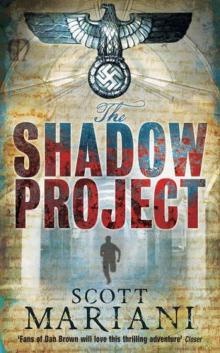 Ben Hope 05 - The Shadow Project
Ben Hope 05 - The Shadow Project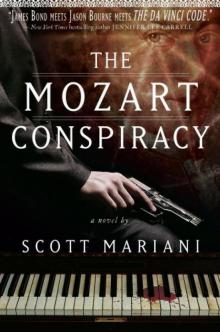 The Mozart Conspiracy
The Mozart Conspiracy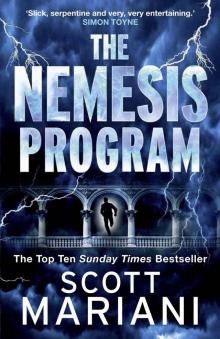 The Nemesis Program
The Nemesis Program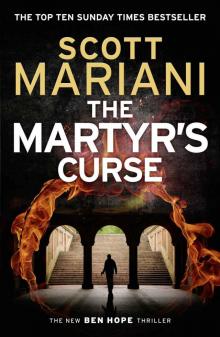 The Martyr’s Curse (Ben Hope, Book 11)
The Martyr’s Curse (Ben Hope, Book 11) THE TUNNEL: A Ben Hope Story
THE TUNNEL: A Ben Hope Story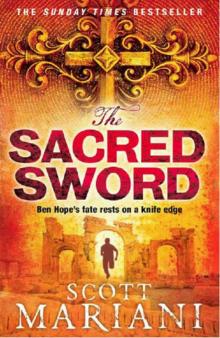 The Sacred Sword bh-7
The Sacred Sword bh-7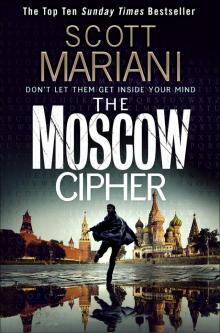 The Moscow Cipher
The Moscow Cipher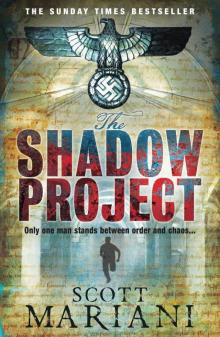 The Shadow Project bh-5
The Shadow Project bh-5 The Tunnel
The Tunnel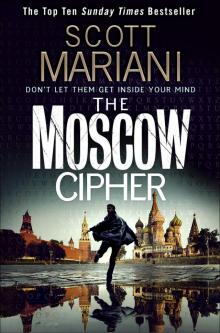 The Moscow Cipher (Ben Hope, Book 17)
The Moscow Cipher (Ben Hope, Book 17)